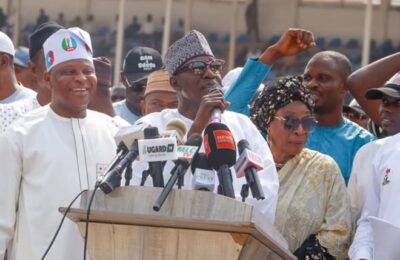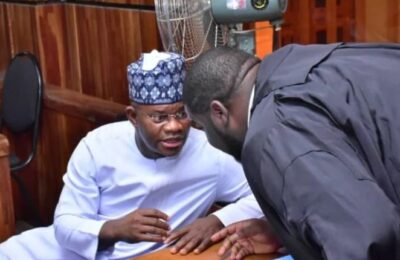By Musa Bakare.
Leadership, especially in a country as complex and diverse as Nigeria, is never a task for the faint hearted. Every decision carries weight, every reform tests patience, and every policy invites both praise and criticism.
Yet, in the midst of the turbulent national transition, and as Nigeria inches toward the 2027 elections, one thing stands out about President Bola Ahmed Tinubu; his strength does not come from mere political calculation, but from an inner conviction that his journey is divinely ordained. For him, governance is not just an exercise of authority; it is a calling.
Since assuming office in May 2023, President Tinubu has faced one of the toughest national landscapes in recent memory. His decision to remove fuel subsidy, long regarded as politically untouchable was an act of courage that many before him dared not attempt. The aftermath was immediate: economic discomfort and harsh, often toxic criticism from the opposition.
.
Yet, rather than retreat, President Tinubu has maintained a steady voice, urging Nigerians to endure short term pain for long term national gain. It takes faith, not just strategy, to hold such a position in the face of widespread skepticism.
Equally telling has been his approach to rebuilding Nigeria’s international credibility. From his engagements at the United Nations General Assembly to meetings with global investors in India, Saudi Arabia, and Germany, the President has demonstrated an unyielding belief that Nigeria’s destiny remains bright.
He has often spoken of Renewed Hope, not as a mere slogan, but as a conviction that the nation’s progress depends on vision guided by providence. In this, one sees a President who draws strength not from applause, but from a deeper spiritual anchor.
Even within the often turbulent domestic political arena, Asiwaju Tinubu’s resilience has been remarkable. The economic reforms, foreign exchange unification, banking stabilization measures, and infrastructure investment drives reflect a leader willing to confront entrenched inefficiencies and waste.
It is politically expedient to criticize bold reforms, but history teaches that transformative leadership is rarely comfortable. Like post apartheid South Africa under Nelson Mandela or Ghana’s early reform years under Jerry Rawlings, Nigeria’s current restructuring demands both courage and faith.
Critics may argue that faith alone cannot solve economic hardship and they are right. But it is faith that sustains the leader who must make unpopular yet necessary decisions. President Tinubu’s political journey from exile in the 1990s to the pinnacle of power is a testament to perseverance rooted in belief.
Time and again, he has emerged from adversity stronger, more deliberate, and more determined to fulfill what he sees as a divinely inspired national mission. The 2027 election will certainly not be different.
In moments of national uncertainty, a leader’s source of strength becomes his compass. For President Tinubu, that source is clearly spiritual. His administration’s success will depend on how well that faith continues to reflect in his policy execution, accountability, and inclusive governance.
As the fruits of reforms gradually begin to manifest positively in the lives of Nigerians, one thing remains certain; the Lord is indeed the strength of President Tinubu, and through that strength, Nigeria’s renewal remains within reach.
– Musa Asiru Bakare is a member of the APC and a political analyst. He writes from Lokoja, Kogi State.




